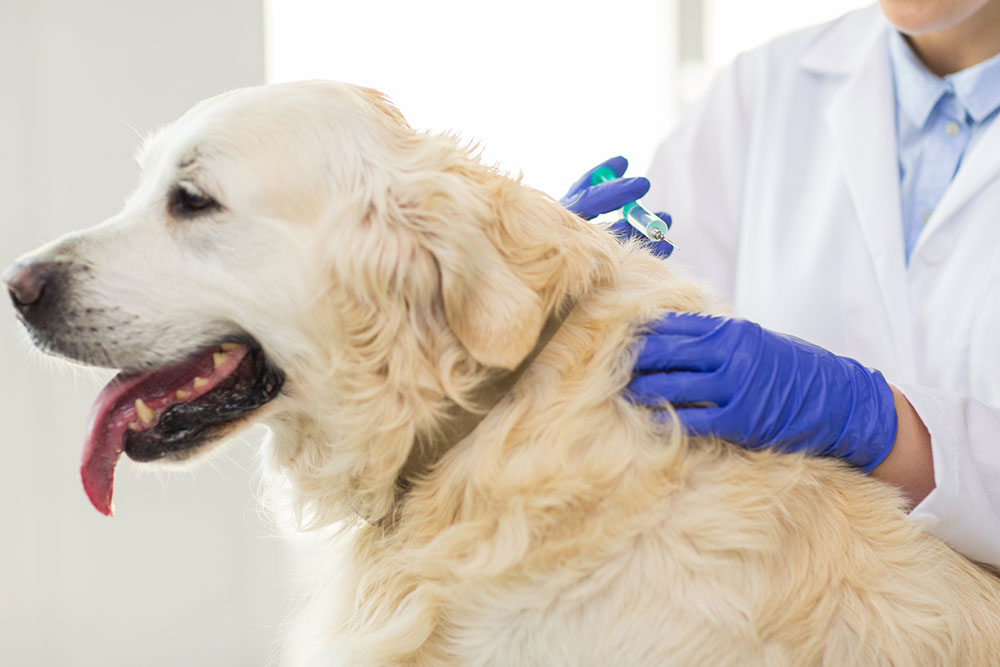Understanding Different Types of Pet Medications for Effective Treatment

Owners want to give their pets the best of what money can buy, especially with regard to comfort and nutrition. Naturally, the responsibility of taking care of pets is more challenging when they get sick as they are more vulnerable and dependent when suffering from an infection or disease. A balanced and nutritious diet, combined with proper medication, will help provide them with much-needed relief both in the short and long term.
One must understand the different classes, types, and categories of over-the-counter or prescription pet medications. It is advisable to consult a veterinarian to discuss the following medications to treat health issues ranging from common infections to severe endocrine disorders:
Antibiotics for dogs
Antibiotic pet medications are effective against bacterial, viral, fungal, and protozoal infections. Depending on the type of infection, the veterinarian will prescribe a course of topical and oral medication to counter the symptoms.
- Antibacterial
Antibiotics curb the ability of the bacteria to multiply and infect neighboring healthy cells. They help fight common respiratory, skin, urinary tract, and dental infections. They are also recommended for dogs suffering from gastrointestinal symptoms, periodontal disease, and soft tissue and bone infections. - Antiviral
Antiviral medications help prevent the growth and reproduction of cells that have been infected by a virus. These medications help alleviate the symptoms of upper respiratory tract, skin, and urinary tract infections, and various gastrointestinal issues. - Antifungal
Dogs also suffer from common infections like ringworm, skin, ear, and yeast infections. A fungus triggers such infections, and these microscopic organisms can be found in molds, yeasts, and mushrooms. Blastomycosis, histoplasmosis, and Cushing’s disease are some of the more severe fungal infections that can be managed with a course of antifungal medication. These medications destroy the fungi cell walls and let the surrounding tissue repair itself. - Anti-protozoal
Protozoa are microorganisms that feed on the nutrients present in your pet’s body. These microorganisms can result in severe gastrointestinal tract disorders, including Giardiasis and coccidiosis. Protozoal infections can also result in Haemobartonellosis, a blood disease that can prove fatal for your pet. The primary function of anti-protozoal medication is to destroy microorganisms by damaging their DNA structure to prevent further cell growth and distribution.
Endocrine medications for dogs
Pets also suffer from diabetes, hyperthyroid disease, hypothyroid disease, Addison’s disease, and Cushing’s disease among common endocrine diseases. These conditions are a result of excess or insufficient production of hormones by the endocrine glands.
- Pet medications for diabetes
Unexpected weight loss, frequent urination, excessive thirst, and weakness are among the common indicators of pets suffering from diabetes. These symptoms can be managed with insulin injections to control glucose levels. Note that insulin is not available over the counter, and pharmacies require a prescription to supply the recommended dosage. - Pet medications for Addison’s disease
Abnormal levels of sodium and potassium caused by a nutrient deficiency increase the risk of Addison’s disease. Common symptoms include weight loss, loss of appetite, excessive urination, vomiting, and diarrhea. The condition is manageable with a prescription course of nutrient-rich enzymes that can be easily incorporated in their daily diet. Mineralocorticoid medications are quite effective in countering nutrient deficiencies in pets to help restore the balance of sodium and potassium. These oral medications will require a prescription for purchase. - Pet medications for Cushing’s disease
The pituitary or adrenal glands can sometimes produce excess cortisol. High cortisol levels weaken the pet’s immune system and increase the risk of secondary infections. Visible indicators of the condition include increased appetite, swollen abdomen, and dark skin. Oral adrenal cytotoxic medications can help suppress the excess production of cortisol to counter the symptoms of Cushing’s disease.Alternatively, you can opt for monoamine oxidase inhibitors, which are available in the form of various prescription pet medications, to treat Cushing’s disease. The inhibitors can also be used for helping dogs suffering from Canine Cognitive Dysfunction (CCD) syndrome. You must check with a veterinarian to figure out which prescription medication will be more effective depending on the severity of the symptoms.
Administering pet medication
Pets can be difficult to handle, especially when they are experiencing discomfort due to infections and diseases. It is necessary to come up with a creative way of administering pet medications until they get used to the new routine.
- Pill pockets
These are nutritious treats shaped to accommodate and mask the taste of different medications available in many flavors for dogs. GREENIES™ PILL POCKETS™ is one of the most popular brands, and the treats are available in chicken, duck & pea, hickory smoke, peanut butter, and cheese flavors. - Crushing and mixing pills in pet food
This is one of the simpler and cost-effective ways of administering oral medications to pets. Delicious pet foods can help mask the taste of strong medications, but it is advisable to check with the veterinarian to confirm whether or not the pills have a medicated coating. - Pill syringes
Pet syringes can directly administer oral medications in the back of the mouth to ensure that pets don’t spit out the medication. It is safe to use, and they can be used to gently and quickly push the tablets without causing any pain or discomfort.
1800petmeds, goodrx, and petcarerx are some of the top websites to order medications. You can avail various coupons for pet medications to save money on bulk orders. You can also find pet medication coupons and discount cards on popular websites, including petdrugcard, discountdrugnetwork, and rxsavingsplus.

